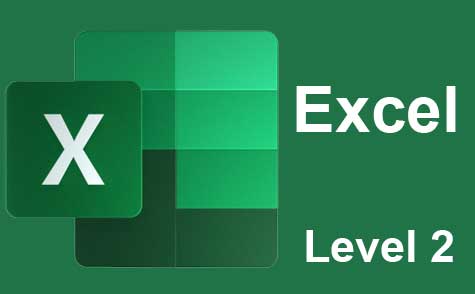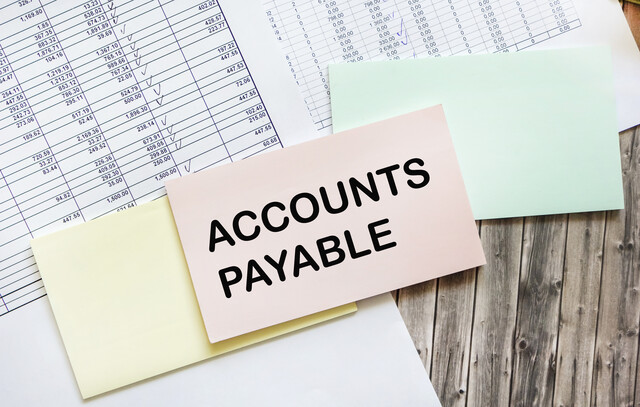Online Class: Beyond the Crust — The Heart and Soul of Bread Baking

no certificate
with CEU Certificate*
-
12Lessons
-
19Exams &
Assignments -
3,152Students
have taken this course -
5Hours
average time -
0.5CEUs
Course Description
The Ultimate Bread Baking Course
Bread, the age-old staple, has echoed through the annals of history as the symbol of sustenance, comfort, and the magic of hearth and home. The art of bread baking, with its rich aromas and transformative powers, has often been wrapped in a shroud of mystery and reverence. But what if the secrets to unlocking this ancient craft were at your fingertips?
Enter our comprehensive course on bread baking, a journey crafted to demystify the age-old tradition, empowering you to master this art from the very comforts of your kitchen. No longer will the idea of baking bread seem an insurmountable mountain; instead, with our step-by-step guidance, it becomes a delightful dance of flour, water, and yeast.
Our course doesn't just offer lessons; it presents an experience. Beginning with the foundation, you'll discover the quintessential utensils and tools that every baker should possess. Delve into the treasury of ingredients, understanding the role of each element, from the humble salt to the effervescent yeast, and the ideal way to stock your pantry for spontaneous bread-making sessions.
Embark on a global gastronomic adventure as you explore a plethora of breads:
- Traditional Breads: Revisit time-honored classics that have graced tables for generations.
- White & Whole Wheat Breads: Understand the nuances between these two staples and their unique textures and flavors.
- Sourdoughs & Rye Breads: Dive deep into the tangy allure of fermentation and the rustic charm of rye.
- Sweet Breads & Quick Breads: Relish the marriage of sweetness with bread and the instant gratification of breads that don't require yeast.
- Unleavened & Gluten-free Breads: Cater to diverse dietary preferences without compromising on taste.
- Grain-free Breads: Explore a world beyond traditional grains, embracing alternative flours.
- And for those times when a loaf has slightly passed its prime? Discover ingenious ways to give stale bread a second, delectable life.
But the course offers more than recipes. It's a tapestry of stories, history, science, and passion intertwined with techniques. You'll gain insights into the chemistry of baking, the science of fermentation, and the intricate ballet of ingredients coming together.
By the end of this immersive course, not only will you be endowed with the skills to produce a symphony of loaves, but you'll also carry forward a legacy. You will become a torchbearer of traditions, capable of enchanting gatherings with the wafting aromas of freshly baked bread and inspiring the next line of passionate bakers.
Embark on this odyssey with us, kneading, shaping, and baking, as we transform you from an eager enthusiast to a masterful bread artisan, creating magic with your hands and heart. Bread baking isn't just a skill; it's a journey, a story, and a legacy. Are you ready to craft yours?
- Completely Online
- Self-Paced
- Printable Lessons
- Full HD Video

- 6 Months to Complete
- 24/7 Availability
- Start Anytime
- PC & Mac Compatible
- Android & iOS Friendly
- Accredited CEUs

Course Lessons
Lesson 1. The Art of Bread Baking: Tools and Techniques
Bread baking, a skill cherished over millennia, flourishes through a blend of simple ingredients and refined techniques enhanced by key tools like dough hooks and bench scrapers. Focusing on essential utensils allows both novice and seasoned bakers to craft exquisite loaves while embracing patience and function over extravagance.Lesson 2. Perfecting Your Loaf: Key Techniques and Tips
Bread-making requires understanding its diverse components; yeast is the conductor, and flour is the foundation. Allow each element to reveal its complexity, like seasoning with salt enhancing flavor and texture, aligning them all in a perfect symphony.Lesson 3. The Intricacies of Ingredient Selection for Perfect Bread
Yeast is essential for achieving the perfect bread texture and flavor, and it must be stored properly to maintain its effectiveness. Cake yeast, though short-lived, is favored by bakers for its robust flavor, while expired yeast can ruin classic recipes like a French baguette.Lesson 4. Bread: A Culinary Journey Through America's History
American bread diversity showcases regional specialties; New England's Anadama bread highlights maritime influences, the South's buttermilk biscuits celebrate agricultural practices, and Louisiana's beignets depict Creole flair. These loaves offer insight into cultural adaptations that transform basic ingredients into elegant expressions of regional identities.Lesson 5. Whole Wheat Bread: An Artisan's Guide
Whole wheat bread, with its rich, nutty flavor, presents a delightful challenge enriched with nutrients and complexity. By mastering whole wheat flour's characteristics and utilizing strategic techniques, bakers can achieve both flavorful and healthful loaves that tempt the palate.Lesson 6. Unveiling Sourdough: A Timeless Tradition of Breadmaking
Sourdough is more than a type of bread; it's a heartfelt connection to humanity's shared past, encouraging discovery through the simple act of fermentation. By cultivating a sourdough starter, you're engaging with natural yeast while embracing sustainability and innovation in your culinary endeavors.Lesson 7. Rye Breads
Rye breads stand as a testament to cultural tradition and culinary innovation, with German pumpernickel and sourdough rye exemplifying their diverse, robust flavors. These nutrient-rich breads offer vital health benefits, making them both a savory delight and a wise dietary choice.Lesson 8. The Art and Science of Sweet Bread Baking
Banana nut bread stands as a classic, blending the sweetness of ripe bananas with spices and nuts to create a comfortingly moist loaf. Economical yet indulgent, it’s a favored choice that reveals its richness after resting overnight.Lesson 9. The Art and Science of Quick Breads
Biscuits and beer bread highlight quick breads' versatility with their unique characteristics and rapid preparation methods, thanks to their different ingredient interactions with leavening agents. These quick breads showcase the ease with which simple ingredients can transform into delicious, satisfying baked goods.Lesson 10. The Global Legacy and Cultural Significance of Unleavened Breads
While grounded in ancient practices, unleavened breads like roti and tortillas continue to embrace modern culinary trends focusing on health and sustainability. Their adaptability to dietary needs showcases a timeless appeal, bridging past and present in delicious harmony.Lesson 11. Beyond Wheat: Crafting Gluten-Free and Grain-Free Diets
As gluten-related disorders spark interest in gluten-free lifestyles, numerous individuals adopt these diets for health improvement, enjoying benefits like better digestion and energy. Grain-free diets, rooted in paleo philosophies, further push the envelope by avoiding all grains, offering reported alleviation of modern health issues.Lesson 12. Bread's Second Chance
Unlock the culinary magic of stale bread by transforming it into delightful dishes that transcend waste into tasteful innovation. This lesson explores diverse recipes from sweet bread pudding to savory soufflés, proving that yesterday's loaf is tomorrow's masterpiece.
Learning Outcomes
- Identify and describe the essential utensils such as dough hooks, bench scrapers, and rolling pins, and their specific roles in preparing and shaping bread dough.
- Define the characteristics and functions of ceramic, glass, and metal mixing bowls for bread making.
- Demonstrate the proper techniques of kneading dough to develop gluten, enhancing the structure and texture of the final bread product.
- Identify and gather all necessary ingredients and tools before beginning bread baking to ensure a smooth and uninterrupted baking process.
- Define the role of yeast in bread baking by explaining its contribution to rise, texture, and flavor, as well as methods for testing its viability.
- Identify and distinguish between different yeast types, such as cake yeast and dry yeast, and determine their storage needs and expiration considerations for optimal bread quality.
- Demonstrate the ability to recreate traditional Mohawk and cast iron cornbread by following specific recipes and techniques.
- Identify the cultural significance of breadmaking in American history by describing its evolution from Native American to European influences.
- Demonstrate the process of making whole wheat bread by applying specific techniques such as autolyse, adjusting hydration, and proper storage for freshness.
- Describe the unique properties of whole wheat flour and their impact on baking bread, including flavor and texture differences.
- Define the historical significance of sourdough baking by summarizing its evolution from ancient Egypt to modern artisanal practices.
- Demonstrate the process of creating a sourdough starter from scratch by accurately measuring and maintaining the required ingredients and environmental conditions over a five-day period.
- Define the historical significance of rye bread in European culinary traditions by identifying at least three cultural influences it had by the end of the lesson.
- Demonstrate mastery of lesson content at levels of 70% or higher.
Additional Course Information

- Document Your Lifelong Learning Achievements
- Earn an Official Certificate Documenting Course Hours and CEUs
- Verify Your Certificate with a Unique Serial Number Online
- View and Share Your Certificate Online or Download/Print as PDF
- Display Your Certificate on Your Resume and Promote Your Achievements Using Social Media

Choose Your Subscription Plan
No Certificate / No CEUs
This course only
| Includes certificate | X |
| Includes CEUs | X |
| Self-paced |

|
| Instructor support |

|
| Time to complete | 6 months |
| No. of courses | 1 course |
Certificate & CEUs
This course only
| Includes certificate |

|
| Includes CEUs |

|
| Self-paced |

|
| Instructor support |

|
| Time to complete | 6 months |
| No. of courses | 1 course |
Certificates & CEUs
Includes all 600+ courses
| Includes certificate |

|
| Includes CEUs |

|
| Self-paced |

|
| Instructor support |

|
| Time to complete | 12 Months |
| No. of courses | 600+ |
Certificates & CEUs
Includes all 600+ courses
| Includes certificate |

|
| Includes CEUs |

|
| Self-paced |

|
| Instructor support |

|
| Time to complete | 24 Months |
| No. of courses | 600+ |
Student Testimonials
- "I think it was interesting to learn about all the different kind of bread we can make. I always made bread in a bread machine but this was my first time making bread without the bread machine. I can't wait to try more bread recipes." -- Melanie S.
- "It was fun and wonderful and I did not expect it at all. For me, I was pleased with this course and everything related to it in terms of information, video, other materials and references were sufficient and excellent." -- Ihsan A.
- "I found it very helpful, with the recipes being very easy to follow and the videos were both enjoyable and educational. I like that you cater to people who read and learn and people who are visual learners." -- Sophie S.
- "I thought this course was the best course ever! This course helped me become a better baker." -- Rochelle B.
- "If you want to learn bread, classes like this are a perfect way to start!" -- William J.
- "This course is so good, and I loved it." -- Hui L.
- "Lots of great new recipes to try! Thanks!" -- Cheryl S.
- "Amazing course! Thank you for putting it together!" -- Jennifer M.










